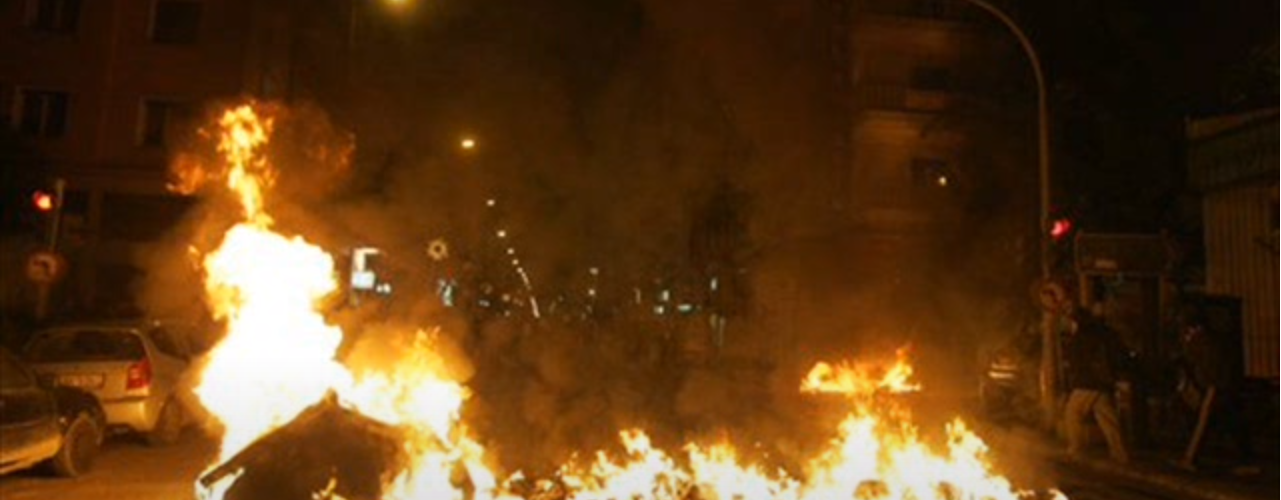Table of Contents
Preface/summary
General Strikes
Infighting
Riots & Other Demonstrations
Preface
The anti-austerity movement began in 2010 in Greece when the government began a process of massive tax hikes and benefit cuts in order to pay back debt from decades of corruption. For a decade now, protesters have responded incredibly strongly against the government, with the most effective pushback coming from unions and the anarchists. The people and services that faced the brunt of budget cuts were airport employees, other public servants, pensions, and healthcare. Many people expressed anger at the fact that police and the military are the only social “services” that never faced any budget cuts or pay cuts.
General Strikes
These riots were the result of a general strike among government employees on the 5th of October, centered around a strike for better wages by the airport workers’ union, and the pilots’ union as well. It was also a protest to the fact that the only social “services” that weren’t defunded during austerity were police and the military. The police briefly faced pension cuts, but they were quickly given back after a police strike organized by the KKE. This led many anarchists and other unions to begin to distrust the communist party.
Striking images of the anti-austerity movement that took over the city center (approximately 100,000 protesters) of Athens, Greece during a two-day-long general strike against the second memorandum on 19 and 20 October 2011, against a new round of harsh austerity measures that were being voted at the time by MPs inside the Greek parliament, aimed once again against the lower-income classes rather, than the banks and the wealthy. It is noted that the police and military were the only services that did not experience defunding during the austerity era.
Greek riot police fired tear gas to disperse rioters throwing petrol bombs and stones, as thousands protested in the capital, Athens, against austerity measures recently passed. No injuries or arrests were reported. The clashes came as some 7,000 people marched peacefully on Friday on the first day of a 48-hour general strike by the country’s two main labor unions. The Trotskyist party also took part in organizing the protests.
The strike occurred against new austerity measures passed by SYRIZA (social democratic party) in a coalition with ANEL, a far-right party. 25,000 people took part in the strike, and 6,000 police were deployed against them.
This was one of the most successful general strikes, against pension cuts that had occurred 11 times since the beginning of austerity policies in 2010 after the financial crash. After the government accepted several demands by protesters, social security contributions will increase more than 300% for more pensions for the people in the coming years.
About 40,000 people joined the strike, smaller than most, although it was far more united and did not end in an attack on the anarchists by the Communist Party.
In Athens, thousands of Greeks took to the streets to protest more planned austerity measures. What began as a nationwide general strike on Wednesday quickly turned violent as thousands of demonstrators clashed with riot police.
Infighting
A demonstration organized against government austerity ends with the KKE (Greek Communist Party) assaulting anarchist youths participating who tried to storm parliament.
Riots & Other Demonstrations
This round of demonstrations in Athens took place because of an upcoming measure on austerity, in which the government committed debt suicide.
Parliament approves new austerity measures including cutting pensions among other things and raising taxes, inciting mass rioting and looting.
The riots happened on the site where a pharmacist had shot himself the night before due to new austerity measures that the government had recently passed.
Police put down a protest in Syntagma Square outside of Parliament after the Greek government accepted extremely brutal and hardline austerity policies necessary to obtain EU rescue loans worth €110 billion. The policies accepted were to cut back on €30 billion of social services, including putting public servants’ wages and pensions on the chopping block as well as heightening sales taxes.

